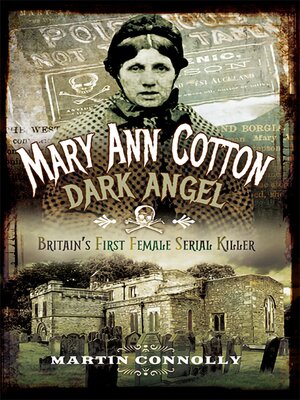
Sign up to save your library
With an OverDrive account, you can save your favorite libraries for at-a-glance information about availability. Find out more about OverDrive accounts.
Find this title in Libby, the library reading app by OverDrive.



Search for a digital library with this title
Title found at these libraries:
| Library Name | Distance |
|---|---|
| Loading... |
A true crime account of the life, trial, death, and aftermath of Britain's first female serial killer. A female thief, with four husbands, a lover and, reportedly, over twelve children, is arrested and tried for the murder of her stepson in 1872, turning the small village of West Auckland in County Durham upside down. Other bodies are exhumed and when they are found to contain arsenic, she is suspected of their murder as well. The perpetrator, Mary Ann Cotton, was tried and found guilty and later hanged on 24 March 1873 in Durham Gaol. It is claimed she murdered over twenty people and was the first female serial killer in England. With location photographs and a blow-by-blow account of the trial, this book challenges the claim that Mary Ann Cotton was the "The West Auckland Borgia," a title given to her at the time. It sets out her life, trial, death, and the aftermath and also questions the legal system used to convict her by looking at contemporary evidence from the time and offering another explanation for the deaths. The book also covers the lives of those left behind, including the daughter born to Mary Ann Cotton in Durham Gaol.
Mary Ann Cotton's crimes were the subject of the 2016 ITV drama, Dark Angel, starring Joanne Froggatt. Praise for Mary Ann Cotton, Dark Angel Recommended as one of the Evening Standard's "Best biographies and memoirs to read in 2016" "For true crime historians, fans of intriguing crime tales, and those interested in how criminal justice operated in the Victorian era, this is a well-presented book on a complex case. Furthermore, it is a book which explores all the evidence available and questions whether or not the conviction and execution of Mary Ann Cotton in 1873 was the correct outcome." —Crime Traveller







